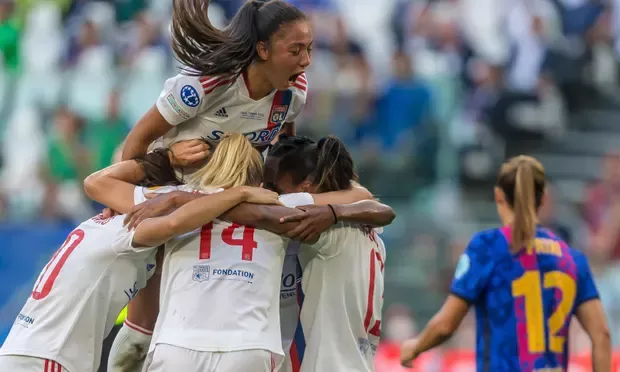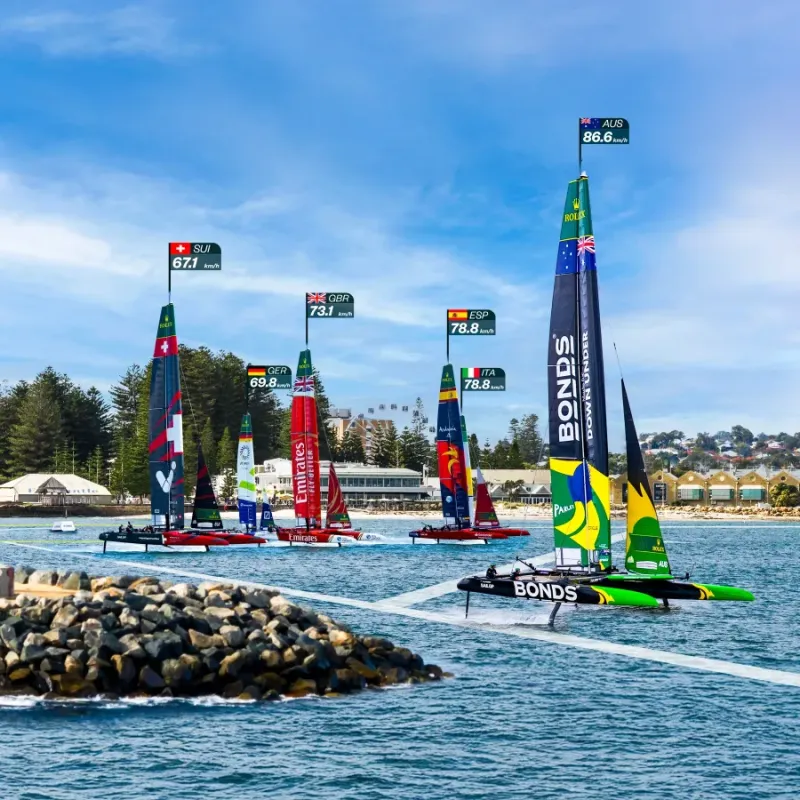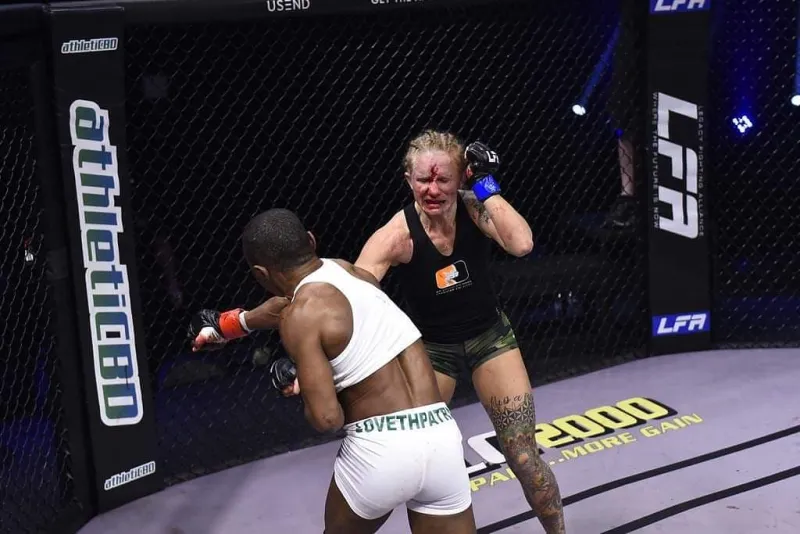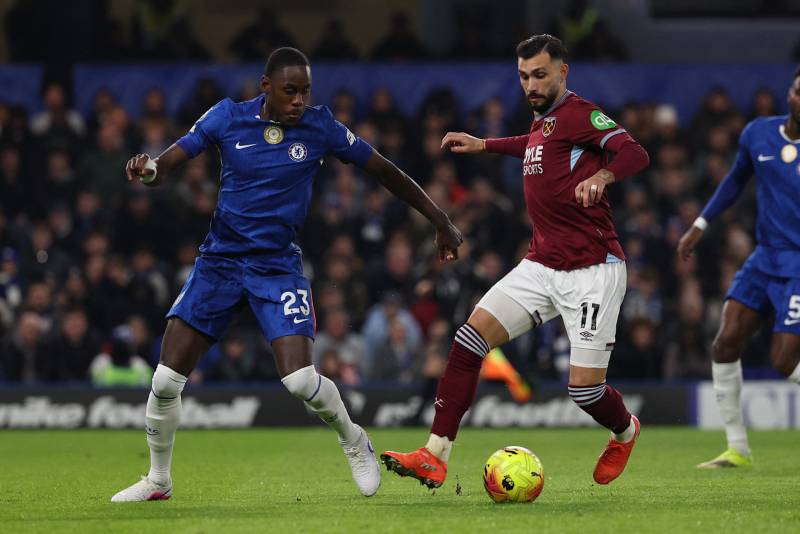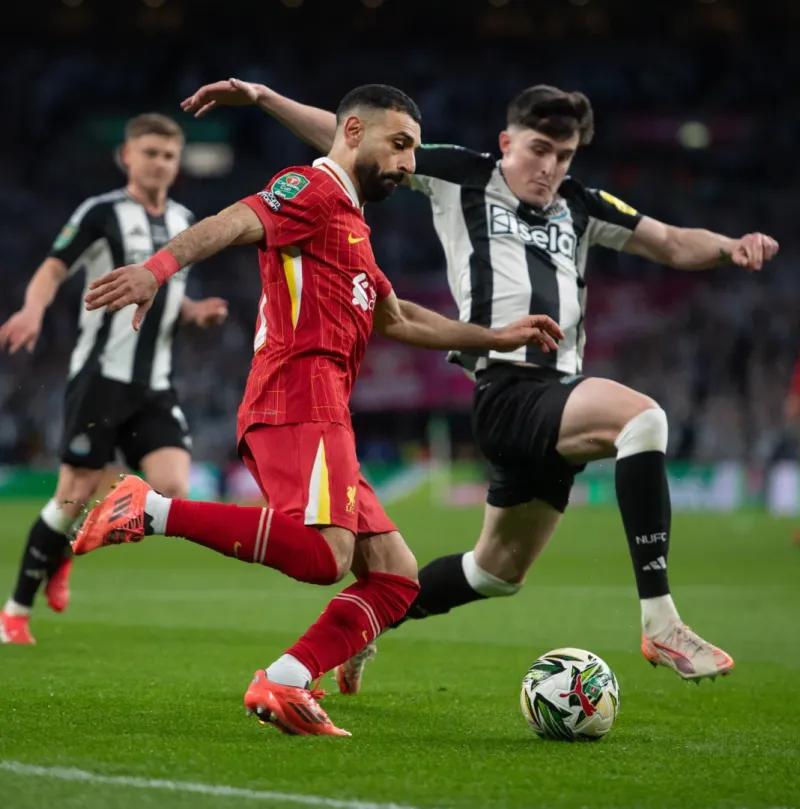The gold glitter that spun around the Lyon players as they celebrated an eighth Champions League title in 10 final appearances brought an enthralling European season to a close. So, what did we learn along the way?
Lyon’s domination
Talk of a power shift at the top of European women’s football was emphatically put to bed with Lyon’s stunning 3-1 defeat of the holders Barcelona in Turin on Saturday. However, it should not have been as surprising a result as much of the reaction suggested. Lyon had a bad season last year, finishing without a trophy for the first time since they won a first league title in the 2006-07 season, but that was a blip rather than the start of a decline. Lyon have achieved longevity through both financial and ideological investment in their women’s football set-up for close to two decades. In that time, the club have driven player wages up, embedded a genuine “one club” mentality from top to bottom and created a culture that players want to be a part of. It will take time for a club to compete with that.
Group stage thrives
The introduction of a group stage this year has transformed the competition. Previously, clubs competed in a straight knockout that began with a round of 32, with some clubs entering directly and others taking part in qualifiers. For this season, after two rounds of qualifying, a 16-team group stage was introduced, with the holders and teams from the top three Uefa-ranked nations entering directly. The impact has been huge. Clubs are benefiting from more money and a new distribution model which means teams in the round of 16 have received €400,000 (teams that made the round of 32 earned €70,000 each in the preceding years). Beyond the finances, which also includes solidarity payments to clubs in leagues with teams represented in the tournament, has been the huge interest in the competition at an earlier stage. Previously, interest gathered pace once the tournament edged closer to the final, at the semi-final stage and occasionally the quarter-final stage. The games delivered, with top teams pitted against each other from a much earlier stage interest was high from the off and teams at the top of the game and lower down were able to test themselves over more fixtures.
Helping to catapult the popularity of the early stages of the competition has been the broadcast deal reached with Dazn. Previously, only rights to the final had been sold centrally by Uefa. The deal with Dazn has meant that this year and next all 61 games have been available to watch for free on Dazn’s UWCL YouTube channel. For the 2023-24 season 19 will be free to watch on YouTube with the rest available to Dazn subscribers. The viewing figures released so far for this season have been hugely impressive. Over 14 million views from more than 210 countries watched the group stage games on YouTube, in addition to millions streaming on the Dazn platform. The willingness to sub-license rights to the final to ensure the game could be shown on TV too, on ITV in England for example, was important. The next big question is whether two years free before some games dip behind Dazn’s paywall is enough to establish a hungry audience.
Catalans conquer
When the final whistle sounded in Turin you could be forgiven for thinking the result was the reverse as the Barcelona anthem echoed around the ground. Having twice sold out the Camp Nou and twice broken the club world-record attendance for a women’s game in the process, Barça fans travelled to watch their defending champions in force. Lyon may be a powerhouse in the women’s game, but the men’s side is not one of the world’s elite teams and the club do not have the global fanbase of teams such as Barcelona. As well as filling planes, 37 coaches travelled overnight from the Catalan capital. The work the club have done to pull their entire fanbase behind their women’s football project in a committed fashion must be looked to by other clubs for inspiration. The biggest clubs wield huge power of influence over their fanbases, do more than make token efforts to present as “one club” and big things can be achieved.
Chasing Lyon
The performance of teams from the Women’s Super League in this year’s competition was disappointing. Arsenal scraped out of their group on goal difference, having won three and lost three, including twice against Barcelona, before enduring defeat over two legs against Wolfsburg in the quarter-finals. Meanwhile Chelsea, runners-up last year, failed to escape the group of death, finishing level on points with both Wolfsburg and Juventus but with an inferior goal difference. Chelsea were outclassed in the final last year in a similar manner to the way in which Lyon outclassed Barcelona on Saturday night and in the 2019 final. What is clear is that those teams closest to bridging the gulf between Lyon and Barcelona and the rest are those most committed to going beyond PR stunts and to commit serious investment and support. Chelsea are arguably the team closest to providing that environment and commitment in England, followed closely by Arsenal and Manchester City. But, while Chelsea have players such as Sam Kerr and Pernille Harder on superstar wages, it is a minority of the team that benefit from bigger pay packets. At Lyon, high wages are the norm, as are vastly superior levels of investment. “We don’t just want to fight for titles but also to make women’s football an absolutely essential and super positive part of the success of the whole club,” the Lyon owner and president, Jean-Michel Aulas, told the Guardian in 2020. “We pay better than others, because for us economic respect is an important part of our values.” Until clubs start to embody a similar ethos at the top, they will struggle to compete.
